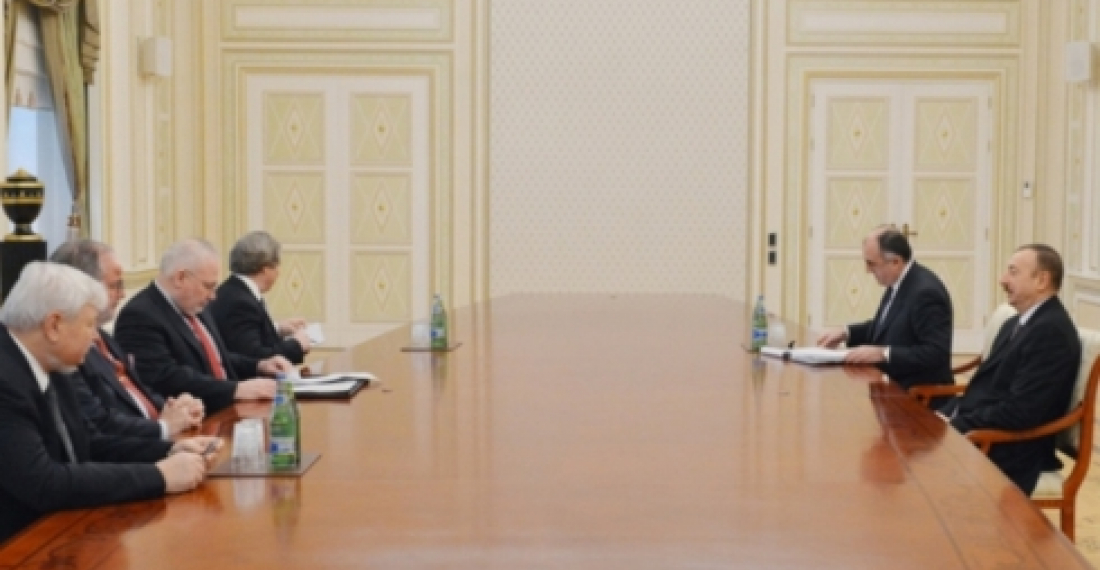Diplomats representing the OSCE Minsk Process are in the region this week for another round of meetings with the leadership of Armenia and Azerbaijan and other interested parties. Yesterday the diplomats representing France, Russia and the United States, as well as the Swiss Presidency of the OSCE, met in Baku with the Azerbaijani leader, Ilham Aliev.
There was no official statement by either side, but the US representative, Ambassador James Warlick, described the meeting as "very good". Not for the first time, a photo of that meeting showed the four diplomats meeting with President Aliev around a huge empty table. The empty space between the President and the diplomats has started representing the huge gap that still remains between what the mediators are proposing and what the Armenian and Azerbaijani leaders are ready to concede in order to break the current impasse.
Ambassador Warlick told APA news agency after the meeting that the Foreign Ministers of the two countries are discussing "the key issues surrounding the conflict. And it is not easy to have these discussions. It is not easy to find the way forward. But these are negotiations and what we want to see in these negotiations is not acceptable compromise made by one side or the other. What we want to find is a way forward for both countries to see a victory, a success; a way forward when both countries can stand up and say, 'Yes, this will lead to new era of peace and prosperity for our people'".
As Ambassador Warlick, who has joined the process only recently, is quickly finding out, reaching that elusive point is more difficult than one thinks.
The gap between mediators and Presidents, symbolised by the huge empty table, remains difficult to bridge. Meanwhile, for those on the line of contact, whose misfortune it will be to die in the next days, weeks and months whilst this diplomatic process continues, time is running out.
source: commonspace.eu
photo: President Ilham Aliev with diplomats from the OSCE Minsk Process in Baku on 4 February 2014.







